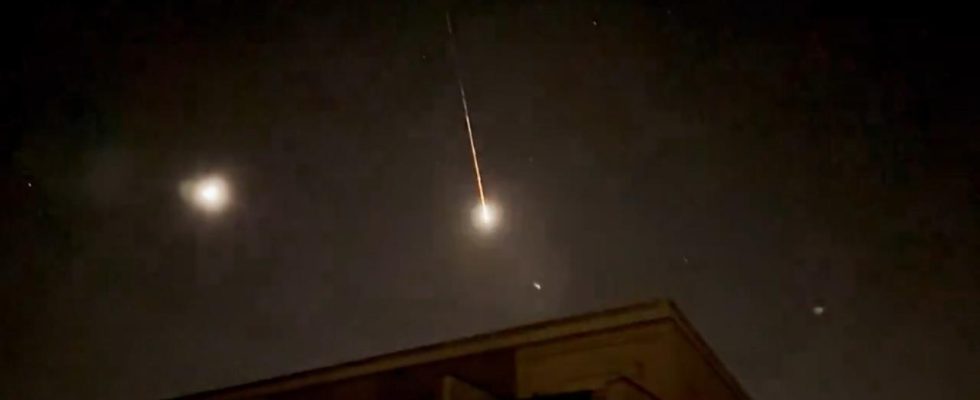An asteroid burned up as it entered the Earth’s atmosphere over Brandenburg. The fireball could be seen at night as far away as Leipzig and Prague. Fragments of the celestial body are suspected to be in Havelland.
On the night of Saturday to Sunday, an asteroid burned up in the sky over Brandenburg. According to calculations by the American space agency NASA, the asteroid fell near Nennhausen in the Havelland district at 1:32 a.m. This could also be seen from a great distance.
According to current knowledge, nothing was hit by the falling rock, i.e. possible meteorites. “We have no notification of this incident,” said the service group leader of the Havelland police station, Petra Ortelt, on Sunday to the German Press Agency. There are no reports of property damage or injuries. With regard to the question of fragments, the First Chief Inspector emphasized that the area around Nennhausen was very large. “We were just as surprised by this announcement,” she said.
Numerous observers uploaded videos of the event to social media that night. Scientist Michael Aye also posted a video on X (formerly Twitter), citing a colleague at the SETI Institute. Webcams in Leipzig and Prague also recorded the glowing fireball.
European Space Agency ESA physicist Richard Moissl told the news magazine “Der Spiegel,” that fragments may have hit the ground as meteorites. Search parties would probably set out on Sunday to find remains. It entered the Earth’s atmosphere at a relatively low speed of just a few kilometers per second.
According to the Minor Planet Center (MPC), the asteroid, about one meter in diameter, was discovered a few hours earlier by Hungarian astronomer Krisztián Sárneczky. The celestial body was given the provisional name “Sar2736”, but is now known as “2024 BX1” [www.minorplanetcenter.net] guided.
Meteorite? – When he’s down! Meteroid and asteroid – as long as they are up
Confusion often occurs when distinguishing between celestial bodies and their names. A meteorite is a small “solid body of cosmic origin” that reaches the Earth’s atmosphere.
Previously, such a meteorite was a “small astronomical body”, which, depending on its size, was either called a mete-roid (the smaller celestial bodies with a diameter of one millimeter to one meter in diameter) or as an asteroid (the larger celestial bodies with a diameter of one meter, but smaller than a thousand meters in diameter). With a diameter of more than a kilometer such a celestial body is a dwarf planet.
Broadcast: rbb24 Abendschau, January 21, 2024

